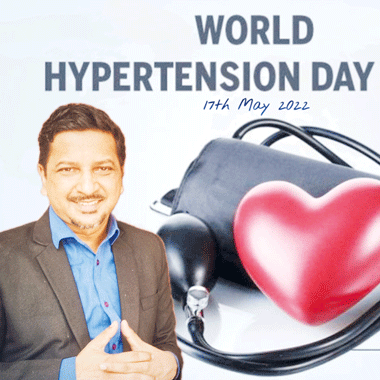A World Hypertension Day Special
May 17 is World Hypertension Day. The Goan Observer team spoke to DR AMIT DIAS of the Department of Preventive and Social Medicine at the Goa Medical College, to understand what the BP numbers mean and how we can live longer, despite the tension of hypertension.
GOAN OBSERVER: Doctor what is Hypertension?
DR AMIT DIAS: Hypertension is more commonly known as high blood pressure. Blood pressure is the force that moves the blood through the circulatory system and is essential. However, when the pressure crosses the normal limit it can cause harm and even death –it needs to be kept under control.
GO: How often we need to screen for hypertension and at what age?
Dr AD: In apparently normal individuals, those in the age group of 18-39 should screen themselves at least once in 3-5 years, while those above the age of 40 should do it annually.
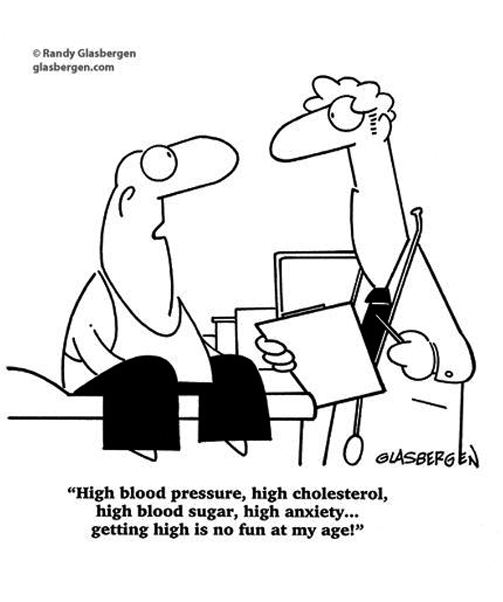
GO: Why is blood pressure given as two numbers, can you explain to the readers what the numbers indicate?
Dr AD: Yes, the blood pressure is measured as systolic (the higher number) and diastolic (lower number) pressure. The systolic pressure is the force of the blood against the walls of the artery as the heart contracts, whereas the diastolic pressure indicates the blood pressure when the heart relaxes or between the heart beats. The readings are measured in mm of mercury and is written, for example as 130/84- where 130 is the systolic pressure and 84 is the diastolic pressure.
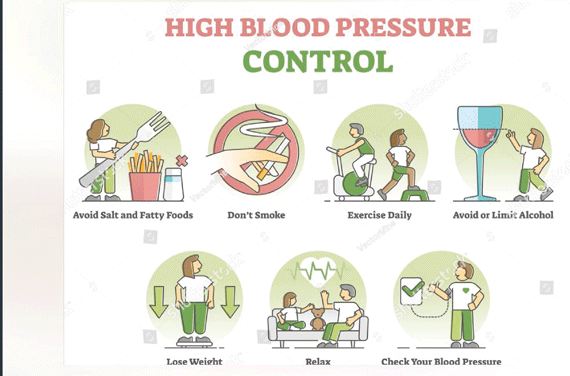
GO: What should the normal pressure be and when do we say something is wrong?
Dr AD: The blood pressure cut-offs have changed over the years. The general consensus is to aim for a normal blood pressure of 120/80 and keep the blood pressure lower than 140/90 mm of mercury.
However, the newer guidelines would label those with a systolic above 130-139 and a diastolic of 80-89 as stage 1 hypertension and those with a BP > 140 (systolic) and > 90 diastolic as Stage 2 hypertension.
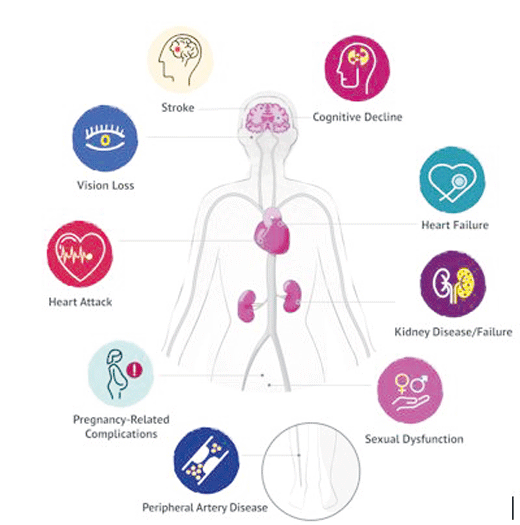
Q: Why is high Blood Pressure a problem?
Dr AD: Imagine you are blowing a balloon… if you blow too much air and increase the pressure, the balloon will burst. Something similar happens with high blood pressure — it either damages the blood vessels and in some cases the blood vessel may burst and the person may have a stroke depending on where the damage takes place. The goal is to detect blood pressure early, much before the damage is done and control the blood pressure.
Chronic hypertension leads to a process called atherosclerosis; where in there is a build-up of fatty material or plaque inside the blood vessels, narrowing them and thus further increasing the blood pressure. If this block happens to the blood vessels of the heart, it can lead to a heart attack.
Besides heart disease, it can also cause kidney disease. Kidney disease in turn can further raise the blood pressure as the electrolytes, including sodium is not adequately excreted from the body. One can get a stroke, which is a block or rupture of a vessel in the brain leading to paralysis. It can damage the eye just like diabetes causing damage to the small blood vessels and leading to retinopathy. There are several complications of raised blood pressure including Alzheimer’s disease and death.
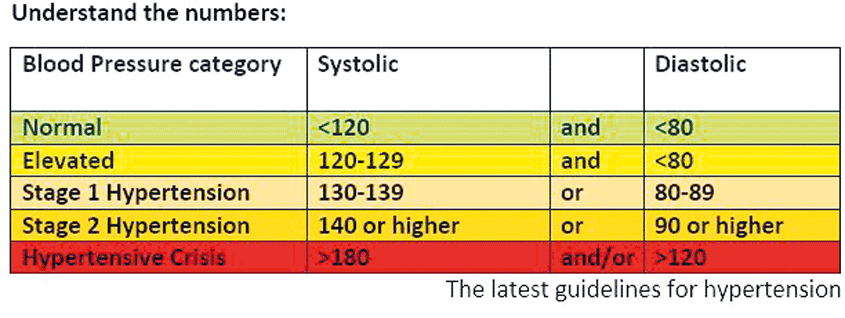
Q: Can hypertension be treated?
Dr AD: Yes, there are a several medicines available for the treatment of hypertension. Wherever possible, one must try and find the cause for the blood pressure and treat the root cause. However often, this is not known, and one must take appropriate treatment and adopt healthy lifestyle measures to control hypertension. The good news is that it can also be prevented by adopting a healthy lifestyle- restricting salt to less than 5 grams per day, diet control, avoid fatty food and increase the servings to fruits and vegetables, exercise at least 30 minutes per day, manage stress, lower alcohol intake, stop smoking, weight reduction and regular monitoring are some of the measures for hypertension prevention and control.
Q: What is the burden of hypertension in the world?
Dr AD: According to the WHO, around 1.13 billion people have hypertension in the world. However, more than 700 million people live with untreated hypertension. This burden is much more in the low and middle income countries like ours. Hypertension is responsible for almost 60% of the stroke deaths and 25% of the deaths due to heart ailment. Studies have revealed that almost 20% of the Indian adult population are having hypertension and the numbers are rising.
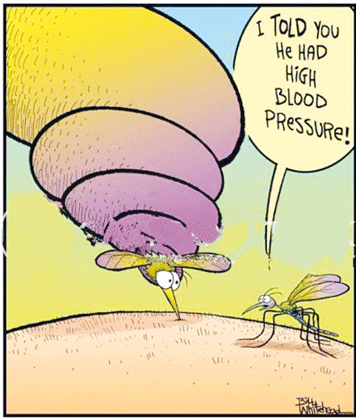
Q: That is indeed a cause for concern. What is your message to the readers?
Dr AD: My message is in the theme for World Hypertension Day, this year — “Measure your blood pressure accurately, control it, live longer.” Now that you know about hypertension, do pay attention, avoid tension. You can keep hypertension under control and live a healthy life- lifestyle changes are a must.
Remember to check your blood pressure. A person with high blood pressure may not have any symptoms for years, while it silently causes damage to the system. With changing lifestyle, it is becoming a major public health problem and cause of death- hypertension is often called a Silent Killer. Do not take this message with a pinch of salt.
About the expert:
Dr Amit Dias, MD, is faculty in the Department of Preventive & Social Medicine at the Goa Medical College and has been involved in a lot of research on non-communicable diseases in Goa. He has also contributed in raising awareness on various public health issues.
Relax with some Humour
